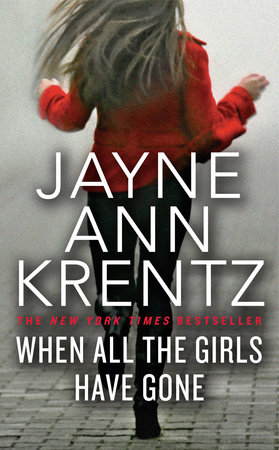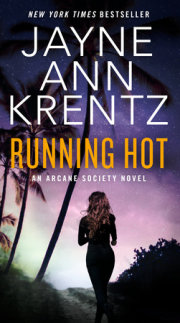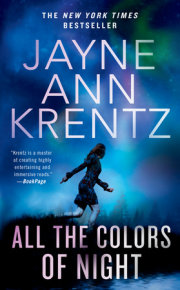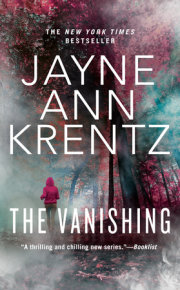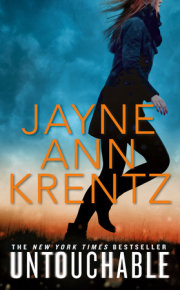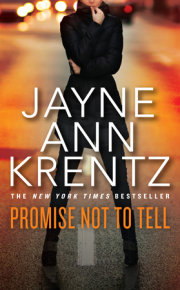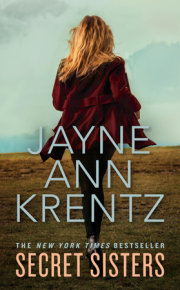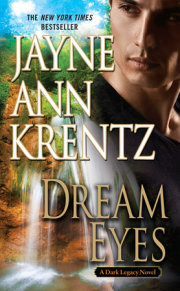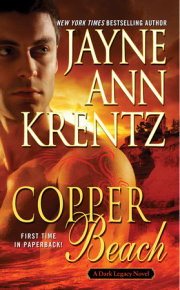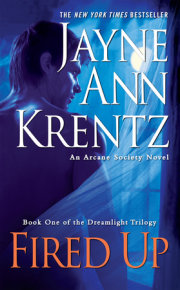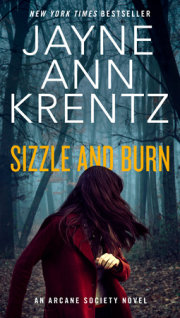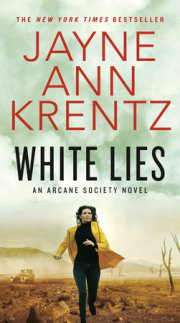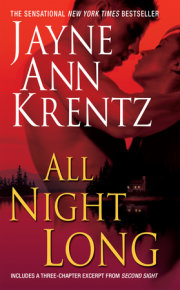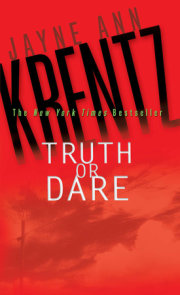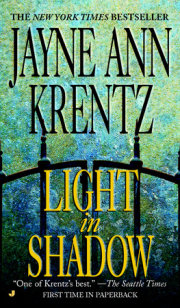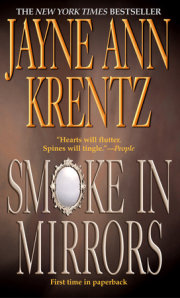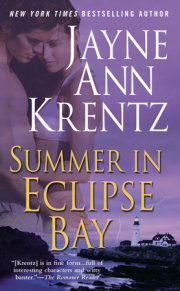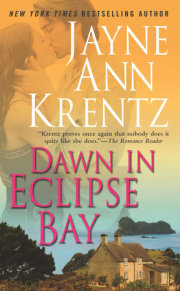***This excerpt is from an advance uncorrected copy proof***
Copyright © 2016 Jayne Ann Krentz
Chapter One
The killer waited patiently for the target to emerge from the cabin.
There was no great rush, after all. The waiting allowed time to savor the prospect of revenge.
It was rather pleasant sitting there, propped against a mossy tree, rifle at the ready. High summer in the Cascades was a very enjoyable time of year. True, the tourists clogged the narrow mountain roads and insisted on stopping at every lookout point to take photographs. They left their trash behind at the numerous picnic sites. But come fall they would be driven away by the heavy rains and high winds of the early storms. In winter snow would make the roads treacherous.
In the meantime the warm, gentle breeze stirring the branches carried the scents of the trees and the vegetation that thrived in the short growing season.
Now there was time to contemplate the past and all the injustices that could be laid at the feet of the man inside the cabin. While making preparations the killer had worried that when the moment finally arrived, there would be at least a few qualms. Instead there was only a great sense of certainty.
The door of the cabin opened. Gordon Greenslade came out onto the porch. He had always been a good-looking man and he was aging well. His hair had turned an attractive silver-white, not dull gray. He was still lean and fit and his aquiline features had softened only a little.
He had a mug of coffee in his hand. The killer recognized the mug. It was several years old, handmade and hand-painted. Like everything else in the rustic interior of the cabin, it was worn and faded.
These days Greenslade used the cabin primarily for hunting and fishing and when he just wanted to get away from the pressures that came with being the town’s leading citizen. He owned the company that was the second-largest employer in town—the college had taken first place in recent years. But more to the point, he owned the local politicians, the authorities of Loring College and a couple of state representatives. If the rumors were true, he also had at least one U.S. senator in his pocket.
Everybody in Loring respected Gordon Greenslade and a lot of people owed him in one way or another. He was a rigid, self-righteous pillar of the community. But no one really liked him. It would be entertaining to see how much effort the police put into investigating his death.
The killer rose and picked up the rifle. There was a clear line of sight. It would be easy to take the kill shot without being seen. But that would defeat the purpose. When you set out to walk the path of revenge you wanted your target to know who was pulling the trigger.
The killer moved out into the clearing in front of the cabin. It took Gordon a moment to notice that he had company. When he did, he was startled, but only briefly. Irritation soon replaced the surprise.
“What are you doing here?” he asked.
The killer did not bother to respond. It was, after all, pretty damn obvious what was about to go down.
Belatedly Greenslade realized the rifle was aimed at him. Rage and panic flashed across his face.
He tried to retreat back into the cabin where he no doubt had a gun. But he didn’t move fast enough. The bullet took him in the chest.
A head shot would have been too easy because death would have been instantaneous. This way there would be time for the killer to watch the target bleed out; time for Greenslade to comprehend that this was all about revenge.
The death of Gordon Greenslade was front-page news in the Loring Herald. There was genuine shock—Greenslade had, after all, been the biggest mover and shaker in town—but not a lot of genuine mourning. Still, everyone made a point of displaying the appropriate degree of respect for the deceased, because Gordon Greenslade’s death had not changed the economic and political reality. The Greenslade family still controlled the second-largest employer in Loring and, indirectly, Loring’s largest employer, the college. It existed solely because of the Greenslade endowment.
The police did their job and conducted an investigation. But in the end they came to the conclusion that the killer had anticipated: Gordon Greenslade had been killed in an accident. The shooter had been hunting out of season and probably hadn’t even been aware that his wild shot had killed a man. In any event, it was unlikely that the person who had pulled the trigger would ever be found.
Everyone who lived in the area knew that the mountains were inherently dangerous. In the fall, heavy rains flooded the rivers to dangerous levels, sweeping away those who were unlucky enough to get caught in the rushing waters. Landslides blocked roads. Strong winds felled trees that could crush vehicles. In the winter, backcountry avalanches invariably took the lives of a few skiers and snowboarders every year. In the summer, it was inevitable that a hiker or two or three would fall into a crevasse or simply go missing forever.
And hunting accidents happened all the time in the mountains.
. All rights reserved. No part of this excerpt may be reproduced or reprinted without permission in writing from the publisher.

